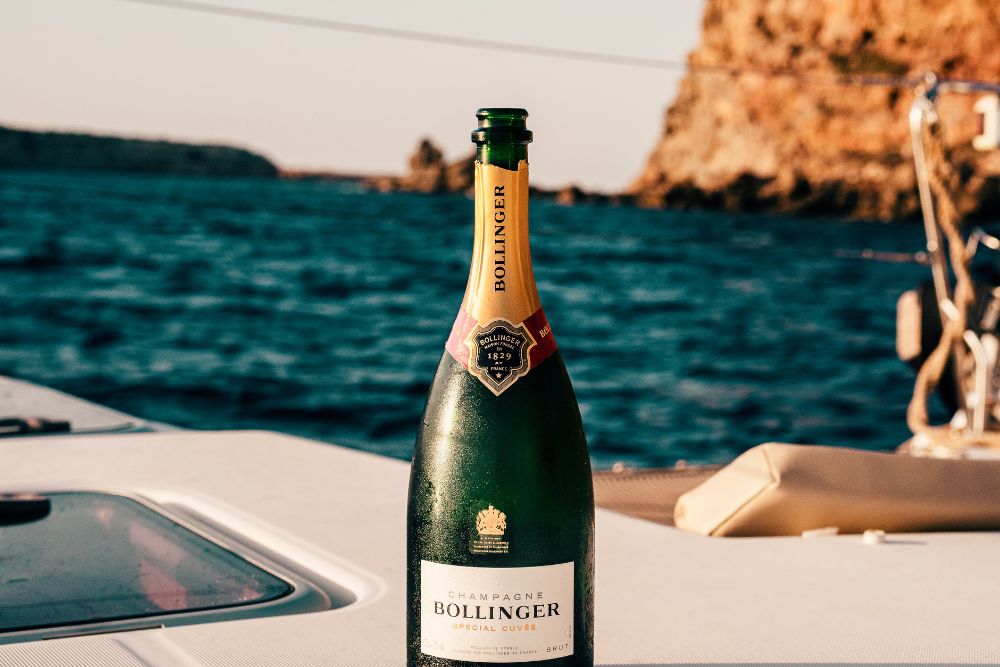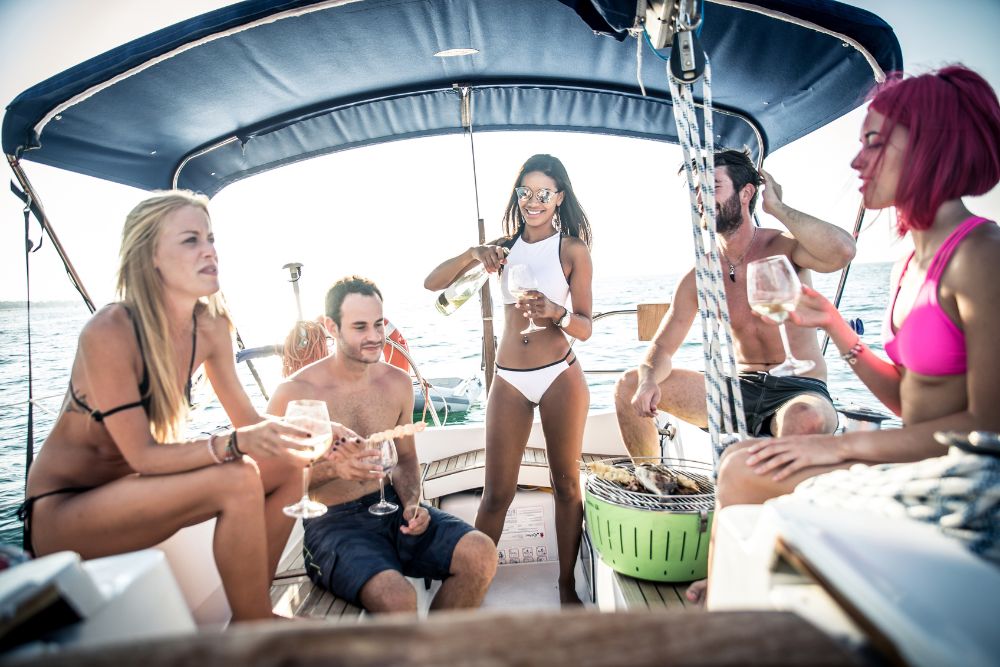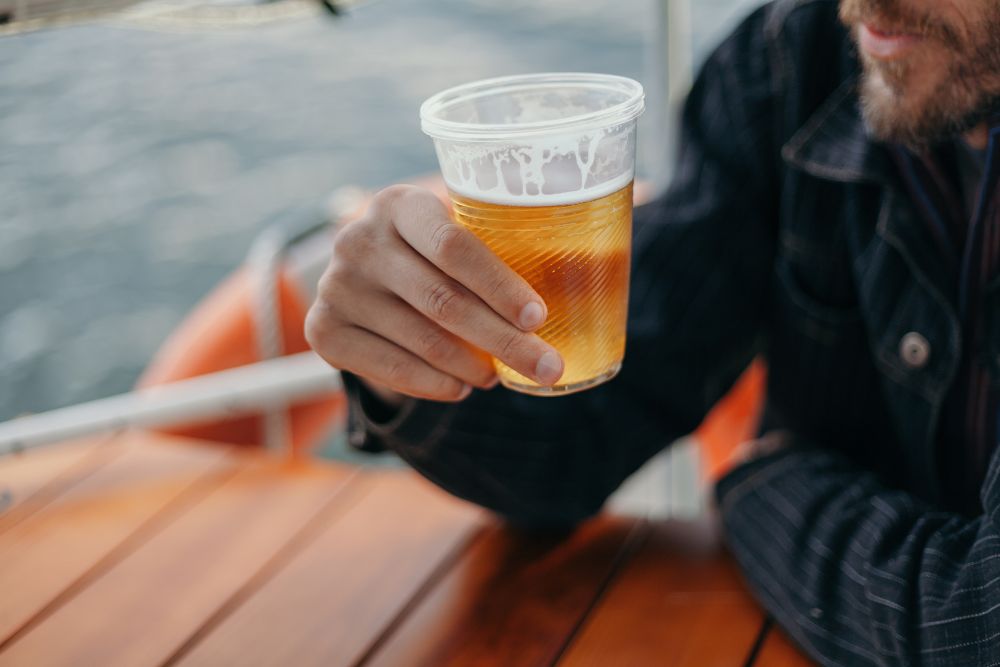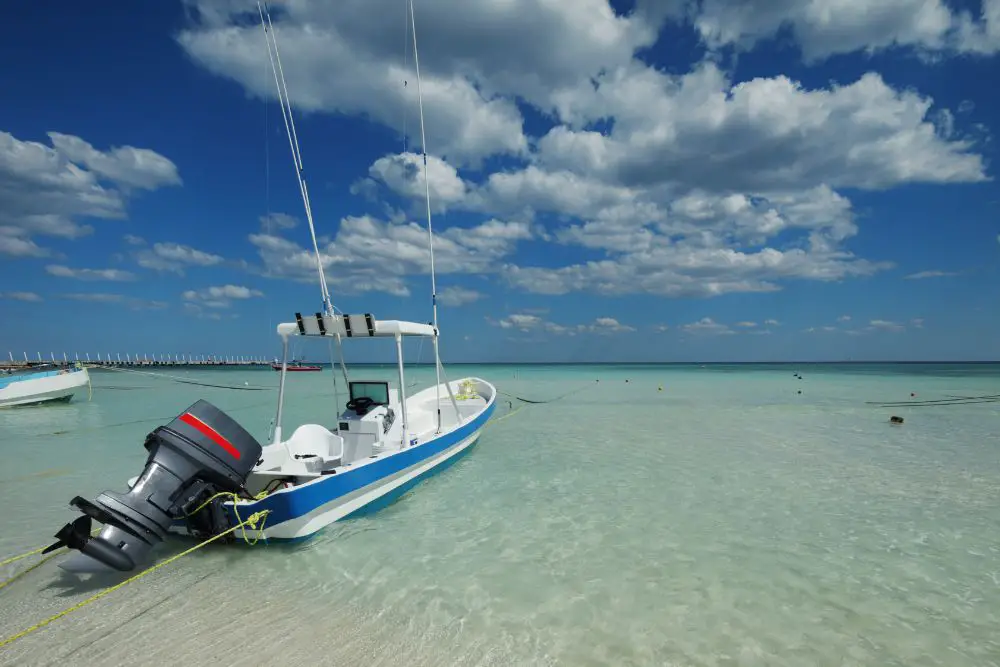It’s no secret that alcohol and boating don’t mix. But just how dangerous is it to operate a boat while under the influence of alcohol? Let’s take a look at the risks associated with boating while intoxicated and offer some tips on how to stay safe on the water.
Dangers of Boating While Intoxicated
The dangers of operating a boat while under the influence of alcohol are well-documented. Studies have shown that alcohol use impairs judgment, coordination, and balance—all essential skills for safe boating. In fact, alcohol is a contributing factor in nearly one-third of all boating accidents.
Not only is it dangerous for the operator of the boat to be intoxicated, but it’s also dangerous for passengers. The reason for this is twofold. First, alcohol impairs your judgment, making it more difficult to make sound decisions while operating a boat. Second, it affects your coordination and balance, making it more difficult to control the boat itself.
These effects are even more pronounced when you factor in the sun and heat of summertime boating, as well as the rocking motion of being on the water. Combined, these can exacerbate the effects of alcohol and make it even more difficult to operate a boat safely.
Not only does drinking while boating put the operator at risk, but it also endangers everyone on board. In addition to making it more difficult for the operator to control the boat, drinking also increases the risk of passengers falling overboard.
Does Alcohol Affect You Differently on a Boat?
Most people know that drinking alcohol and then operating a motor vehicle is a recipe for disaster. But what many people don’t realize is that the same rule applies to boats. In fact, according to the United States Coast Guard, “A boat operator is likely to become impaired more quickly than a driver, drink for drink.” So what is it about boating that makes alcohol more dangerous? Let’s take a closer look.
How Alcohol Affects the Body on a Boat
Several factors contribute to the heightened risk of drinking and boating. First, as you are on your boat, you constantly get in and out of the water, whether swimming or participating in water sports like wakeboarding or skiing. This exposes your body to more cold water, which causes your blood vessels to constrict and your blood pressure to rise. Additionally, the sun and wind can contribute to dehydration, which can make the effects of alcohol even more pronounced.
Another factor to consider is the rocking motion of the boat, which can cause seasickness. This can make it harder for your body to process alcohol and lead to vomiting, further dehydrating you. And finally, there is the simple fact that most people tend to drink more when they are on vacation and relaxing in a social setting like a boat party. All of these factors can conspire to make alcohol hit you harder when you’re on a boat than when you’re on land.

Dos and Don’ts of Having Alcohol on a Boat
Alcohol and boats don’t mix. That much is clear. But if you’re set on having alcohol on your boat, there are some dos and don’ts that you should keep in mind. First and foremost, never drink while operating a boat. Drinking while boating is illegal in most states, and for good reason. Alcohol impairs your judgment, reaction time, and coordination, which are essential when operating a boat.
If you’re a passenger on a boat, it’s also important not to drink alcohol. Just like with the driver of the boat, drinking impairs your judgment, reaction time, and coordination. In addition, it can be dangerous to be impaired while on a moving vessel. If you must drink alcohol while on a boat, here are some Dos and Don’ts to keep in mind.
Do: Bring Plenty of Other Cold Drinks
If you or your guests are going to be drinking alcohol on the boat, it’s important to bring plenty of other cold drinks as well. This will help ensure that everyone stays hydrated since alcohol can cause dehydration. In addition, having other non-alcoholic options will give people the choice to drink something else if they want to switch up their beverage or if they’ve had enough alcohol for the day.
Do: Bring Food and Snacks
Food is always essential when spending a day out on the water. But it becomes even more important when alcohol is involved. Eating food will help slow down the absorption of alcohol into your system and prevent you from becoming too impaired too quickly. Plus, no one wants to drink on an empty stomach—that’s just asking for trouble. So be sure to bring along some snacks or a full meal to keep everyone satisfied throughout the day.
Do: Dock and Exit the Boat to Drink
If you do decide to drink while on the boat, it’s important to dock the boat and exit before doing so. Drinking on a moving vessel is dangerous for both you and other passengers on the boat. And if you fall off the boat while drunk, you could seriously injure yourself or even drown. So play it safe and wait until the boat is docked before having a drink.
Do: Wait at Least an Hour per Drink Before Boarding the Boat Again
This one might seem like a no-brainer, but we’ll say it anyway: don’t get back on the boat immediately after having a drink! Alcohol can stay in your system for hours after you consume it, so you must wait at least an hour after having a drink before boarding the vessel again. This will help ensure that you won’t be impaired while operating the boat or participating in other activities onboard.
Do: Wear The Proper Boating Attire
When spending a day out on the water, it’s important to dress for success—or in this case, dressing for safety. You should always wear proper boating attire when aboard a vessel, which includes closed-toe shoes (preferably non-slip), sunscreen, sunglasses, and a hat or visor. Wearing the right clothes will help protect you from the sun and potential falls onboard.

Dangers of Boating Under the Influence
Every year, countless people are injured or killed in boating accidents. Many of these accidents are caused by one thing: alcohol. Boating under the influence (BUI) is a serious crime in many states, and for good reason. Alcohol impairs your ability to operate a boat safely, and when you mix it with the sun and the waves, it can be a recipe for disaster.
So, what exactly are the dangers of boating under the influence? Let’s take a look at three of the most significant dangers below.
Danger #1: You Could Be Seriously Injured—or Kill Someone Else
The first and most obvious danger of boating under the influence is that you could be seriously injured or worse. operating a boat while intoxicated is incredibly dangerous. Not only are you putting yourself at risk, but you’re also putting everyone else on the boat at risk.
Alcohol affects your coordination, balance, and judgment, which are essential for safely operating a boat. Even if you’ve been boating for years and know the waters like the back of your hand, alcohol can still impair your ability to make sound decisions and react quickly in an emergency situation. In short, it’s just not worth the risk.
Danger #2: You Could Go to Jail—or Worse
Another danger of boating under the influence is that you could end up in jail or worse. You could face serious consequences if you’re caught boating under the influence. Depending on your state, you could be fined, have your license suspended, or even be sent to prison.
So, not only could BUI ruin your life, but it could also ruin your career and reputation. Not to mention, if you cause an accident while boating under the influence, you could be liable for any injuries or damage that occur as a result.
Danger #3: You Could Ruin Your Vacation—or Someone Else’s
Finally, boating under the influence could ruin your vacation—or someone else’s. Let’s face it: most people go on vacation to relax and have a good time. But if you’re caught boating under the influence, your vacation could quickly turn into a nightmare.
Not only will you have to deal with the legal repercussions we mentioned above, but you’ll also have to deal with the emotional aftermath of any accidents or injuries that may have occurred due to your actions. So please, don’t let alcohol ruin your vacation—or someone else’s.
Penalties for Boating Under the Influence
The penalties for boating under the influence (BUI) are severe. You could lose your boat and your driver’s license and even go to jail. In addition, you will have to pay fines and court costs. The best way to avoid these penalties is not to drink and boat.
Boating under the influence is taken very seriously because it endangers not only the person operating the vessel but also everyone else on board. When intoxicated, people are more likely to make poor decisions and put themselves and others at risk.
The best way to avoid these penalties is not to drink and boat. If you are going to drink, make sure you have a designated driver who can operate the vessel safely. Remember, it is always better to be safe than sorry. So make good choices and don’t let alcohol ruin your day on the water.
In Conclusion:
Alcohol use and boating don’t mix. Boating while intoxicated is dangerous for both the operator and passengers of the boat and can lead to accidents, injuries, and even death. If you’re going to drink while on a boat, there are some steps you can take to minimize the risks; however, the best way to stay safe is to avoid drinking altogether.
The bottom line is this: if you’re planning on drinking alcohol while boating, be aware of the heightened risk and take steps to protect yourself and others. Drink responsibly, stay hydrated, and always have a designated driver who will abstain from drinking for the duration of the trip. Following these simple guidelines can help ensure that your time on the water is safe and enjoyable for everyone involved. Cheers!



